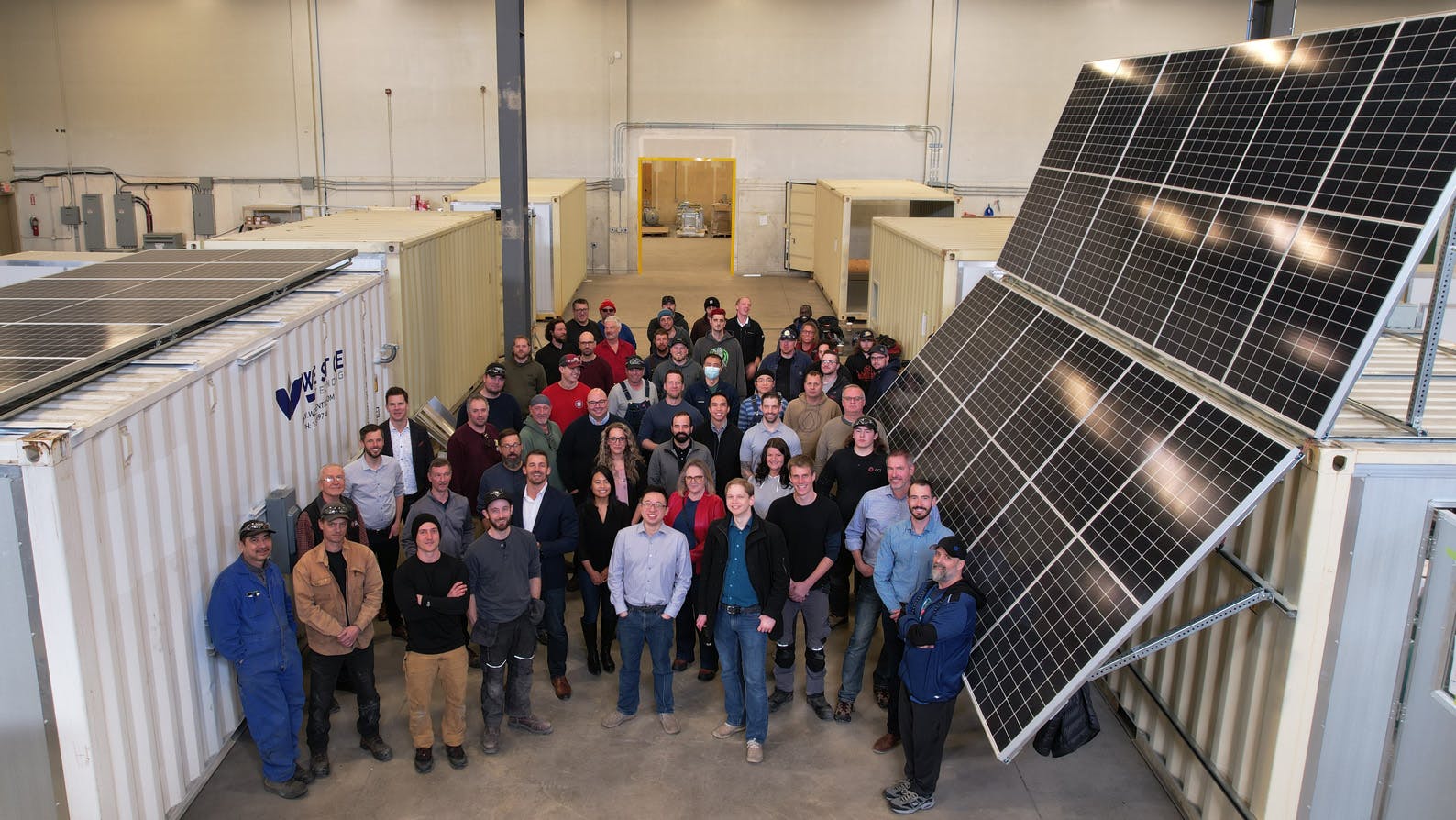The next Small Business Award in our spotlight series goes to Westgen Technologies, founded by CEO Connor O’Shea. The connectFirst Innovation award is in recognition of Westgen’s pioneering eco-solutions for the oil and gas industry to eradicate methane emissions from pneumatic devices.
One of the greatest challenges of our time is eliminating greenhouse gases and Westgen Technologies is on the front lines in that mission. Westgen aims to rid the planet of methane, a potent greenhouse vapour contributing to increased global warming and climate change, with a warming potential of 25 times that of carbon dioxide over a 100-year period.
Working specifically with oil and gas industries, Westgen has targeted pneumatic or air-pressured devices and systems, responsible in part for releasing the volatile toxin into the atmosphere.
Canada’s 2021 National Inventory Report states that methane makes up about 13 per cent of Canada’s total greenhouse gas (GHG) emissions and approximately 21 per cent of the oil and gas sector’s total GHG emissions in carbon-dioxide equivalent, adding that methane is responsible for at least a quarter of today’s global warming.
To bring these findings closer to home, pneumatic tools used every day, such as nail guns and bicycle pumps, might seem innocuous, since “each individual device only emits a little bit of methane,” says Westgen CEO Connor O’Shea. “But because there are hundreds and millions of these devices around the world, the emissions count is equivalent to 120 million cars on the road every single day.”
O’Shea’s business partner, an engineer who had designed sites, saw what was happening, recognizing the legacy emissions issue in the oil and gas industry.
“At the time, he tried to find a power generation solution to solve the problem, so that we could provide the electricity and run an air compressor to supply the devices, but no such solution existed on the market,” says O’Shea. “The problem is often oil and gas locations are in the middle of nowhere and therefore not close to a power grid.”
“There’s no air compressor and no way to actually get compressed air onto the site. Historically, the industry has used what’s available, which is actually the compressed natural gas that’s coming out of the well,” he says. “The pressurized natural gas from wells allows workers to run gas and open and close control valves, for example. The downside of that practice is that the gas composed mainly of methane goes back into the atmosphere.”
Solar hybrid solutions
This emissions challenge spurred Westgen to patent and develop a battery prototype in 2019, called the EPOD: a scalable solution that eliminates methane emissions from pneumatic devices at on- and off-grid locations.
“We knew it was a power generation problem, so we developed a solar hybrid approach to generating power, inspired by cars,” says O’Shea. “If cars can run on batteries, we should be able to run one of these sites on batteries. We can have solar to continuously run the batteries along with a back-up engine when they get drained or if solar doesn’t keep up. The engine can turn on, charge the batteries and turn off again.”
EPODs are reliably generating power and reducing methane emissions in the harshest climates all over North America. To date, 300 EPODs have been sold with 200 produced and shipped to oil and gas producers continent-wide, including Alberta, British Columbia, Pennsylvania, Utah, Wyoming and Texas.
Empowering the energy evolution
Westgen’s catchphrase, Empowering the energy evolution, perfectly defines what they do. A first fundraiser in May tipped them over the $20 million mark, and the company has grown from nine people to just under 100.
“As a startup, it’s been chaotic but we’ve made a lot of progress this year building the system and the company,” says O’Shea. “We used to outsource our manufacturing but in January we opened a 46,000-square-foot facility in Balzac, Alberta, which is where I am today. We’re now producing $3 million a month out of this facility.”
He says the coming year will be equally demanding. “We’re aiming to grow substantially into the US, as well as release a new product and to double our revenue from this year.” In five years, they are aiming to grow their revenue tenfold from 2023.
The Calgary Chamber award has been important for building their profile and reputation to external stakeholders. “The award tells people we’re doing good things without having to say it ourselves,” he says.
Emissions-free Canada
Thanks to companies like Westgen, the National Inventory Report also states that Canada is on track to meet its 2025 target for methane reductions from the oil and gas sector with Canada’s big zero emissions target set for 2050.
Westgen is planning to contribute to that target with advancing technology. “Our purpose around empowering the energy evolution is to do the things we can do today, to have an impact right now.”
For more information, visit westgentech.com.





